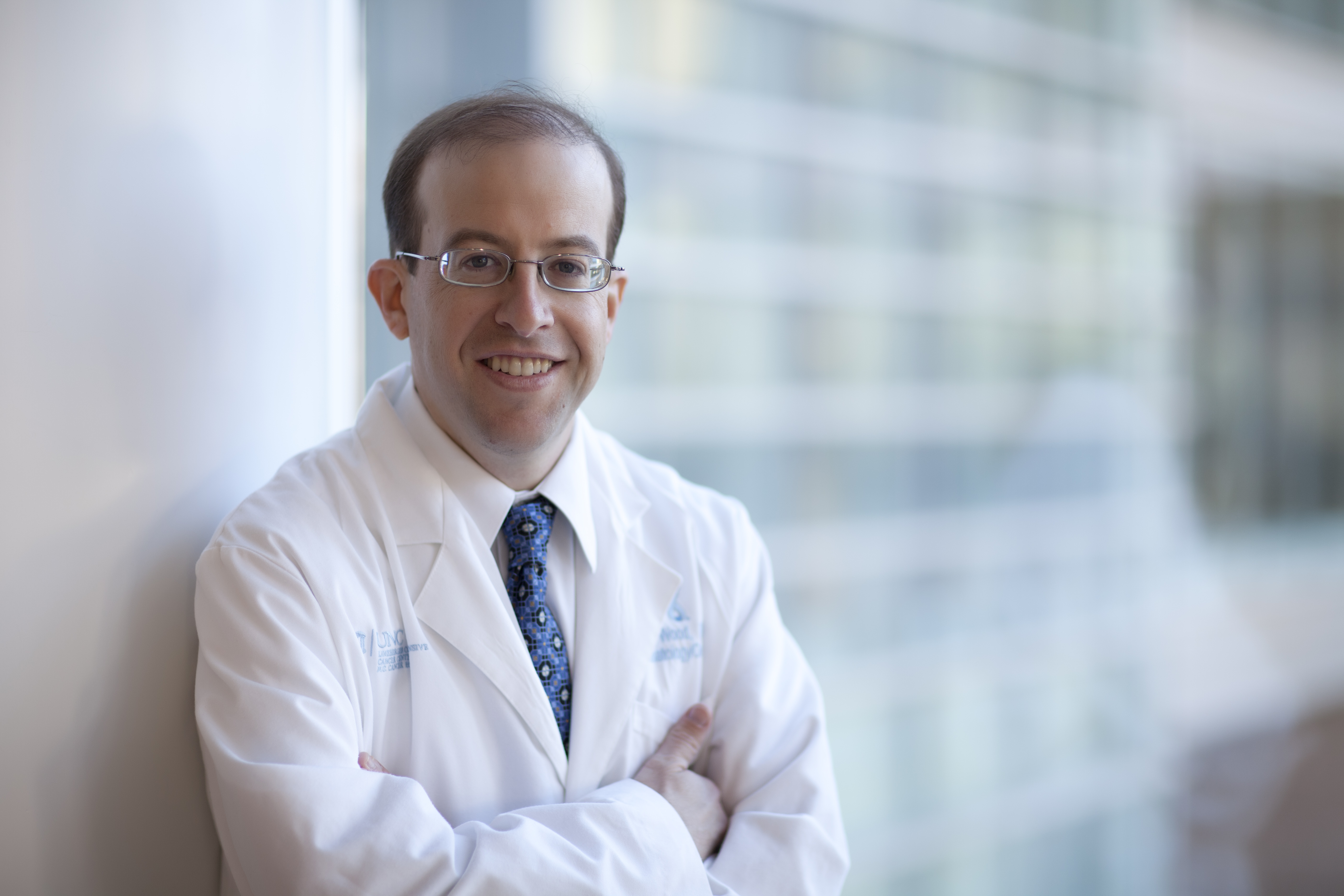William Wood, MD, and colleagues presented preliminary findings at the American Society of Hematology Annual Meeting that found multiple myeloma patients seen at an NCI comprehensive cancer center within one year of diagnosis had better survival, even after controlling for various factors.

Patients with multiple myeloma who saw a specialist at a National Cancer Institute-designated comprehensive Cancer Center had better overall survival than patients who only saw a community oncologist, according to a study from the University of North Carolina Lineberger Comprehensive Cancer Center.
The preliminary findings were presented Sunday, Dec. 10, at the 59th American Society of Hematology Annual Meeting.
“Patients who were seen at an NCI comprehensive cancer center within one year of diagnosis had better survival, even after we controlled for age, gender, race, insurance type, frailty, employment and whether or not they got a transplant,” said UNC Lineberger’s William Wood, MD, associate professor in the UNC School of Medicine and the study’s senior author.
In the study, researchers examined overall survival for patients with multiple myeloma, drawing on data for 1,029 patients diagnosed in North Carolina from 2006 to 2012. There are three NCI-designated comprehensive cancer centers in the state.
They found that patients had a higher risk of mortality if they did not see a provider at an NCI-designated comprehensive cancer center. They also looked at survival according to the volume of multiple myeloma patients that patients’ community oncologists had cared for, finding that patients of low-volume community oncologists had worse overall survival compared to patients treated primarily by NCI-designated comprehensive cancer center myeloma specialists. Specifically, they found that their risk of mortality was 39 percent greater if they saw a low-volume community provider compared with patients who saw a provider at an NCI-designated comprehensive Cancer Center.
There was not a statistically significant difference for patients seen by community providers who had a high volume of multiple myeloma patients, which is an area that Wood said needs to be further studied.
“Our data add to accumulating evidence that myeloma patients benefit from treatment at a specialized center,” said the study’s first author Ashley Freeman, MD, a former fellow in the UNC School of Medicine Division of Hematology/Oncology who is now on faculty with the British Columbia Cancer Agency in Vancouver, Canada. “It is important to note that this study focused on NCI Comprehensive Cancer Centers since these were the high volume facilities during the study period, but we were not able to evaluate outcomes for patients treated at community practices that have expanded their myeloma programs in recent years.”
The researchers said future studies should address the types of collaborations that produce better outcomes for patients, and it should further probe differences in overall survival for community providers who saw a large volume of patients.
In addition to Wood, other authors included Ashley T. Freeman, Lei Zhou, May Kuo, Justin G. Trogdon, Chris D. Baggett, Sascha A. Tuchman, and Thomas C. Shea.
The study was supported by the University Cancer Research Fund.
